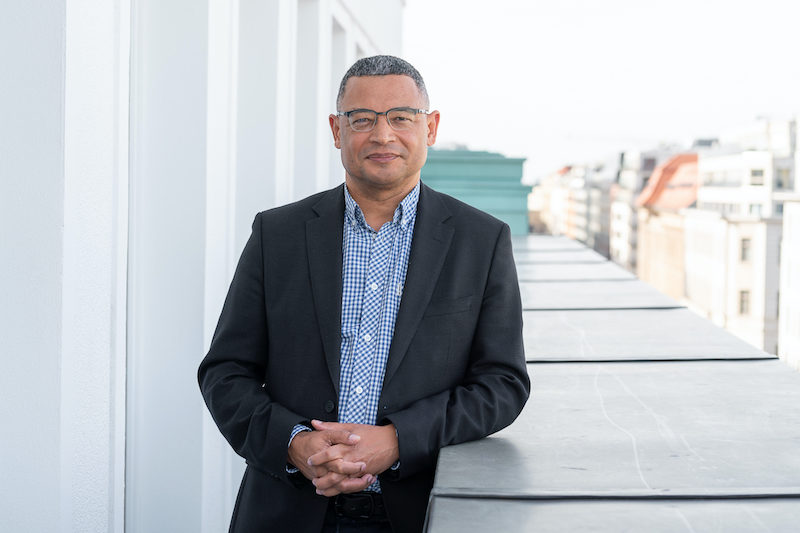GSD Public Program: Loeb Lecture: Edgar Pieterse

The GSD is pleased to present a series of talks and webinars broadcast to our audiences via Zoom.
*This lecture will be ONLINE ONLY. For security reasons, virtual attendees must register. Scroll down to find complete instructions for how to register.
Event Description
African cities are confronted by large youthful labour markets with limited prospects of formal industrial employment, on the one hand, and rapid physical expansion without the resources to address the massive infrastructural requirements to support people and economies, on the other. These daunting challenges are compounded by the impacts of the climate crisis and other forms of acute environmental risk. This confluence calls for situated innovations to reimagine and redesign investments in sustainable infrastructures that are simultaneously low-carbon, labour-intensive and geared towards placemaking and civic empowerment. In theory, the precepts and instruments of design, digital platforms, circular economy and an entrenched repair and maintenance disposition can all contribute to the realisation of sustainable infrastructures and well-being. However, as always, the devil will be in the institutional, cultural and metabolic dynamics of specific cities. Intentional interdisciplinary work is called for to explore these potentialities, which implies new kinds of city-based institutions that promote experimentation, learning and testing. While the African city demands this kind of institutional milieu, similar innovations can be generative in all urban settings. Edgar Pieterse’s Loeb Lecture will reference various African cities but converge on a specific site in Cape Town where wild and improbable plans are afoot to instantiate an imagined experimental space.
Speaker
Edgar Pieterse holds the NRF South African Research Chair in Urban Policy and is founding director of the African Centre for Cities (ACC) at the University of Cape Town. His research and teaching gravitate around urban development politics, everyday culture, publics, radical social economies, responsive design and adaptive governance systems. He publishes different kinds of text, curates’ exhibitions, as well as difficult conversations about pressing urban problems. He collaborates with former Loeb Fellow, Tau Tavengwa to produce Cityscapes—an international occasional magazine/platform on urbanism in the global South. He is widely published and his most recent book is, New Urban Worlds (with AbdouMaliq Simone). Current research is focussed on a major exhibition on complexity and urban futures that will be mounted in 2022, as well as exploratory work on radical social enterprises that seeks to define alternative modalities of service delivery in African cities. Finally, Edgar is working on an institutional framework to promote city-level innovation ecosystems in Africa that will promote the localisation of sustainable infrastructure and job creation in low-income contexts. He serves on various editorial boards of academic journals and research advisory boards of leading research centres:, e.g. Indian Institute for Human Settlements (Bangalore), LSE Cities (London), and Pathways to Sustainability – Utrecht University. In the African context, he has been active in the growth of two key pan-African knowledge networks: Association of African Planning Schools (57 schools in 18 countries) and the African Urban Research Initiative (18 institutions in 16 countries); both are anchored in the African Centre for Cities.
Follow Edgar Pieterse on Twitter.
How to join
Register to attend the lecture here. Once you have registered, you will be provided with a link to join the lecture via Zoom. This link will also be emailed to you.
The event will also be live streamed to the GSD’s YouTube page. Only viewers who are attending the lecture via Zoom will be able to submit questions for the Q+A. If you would like to submit questions for the speaker in advance of the event, please click here.
Live captioning will be provided during this event. After the event has ended, a transcript will be available upon request.
Anyone requiring accessibility accommodations should contact the events office at (617) 496-2414 or [email protected].

